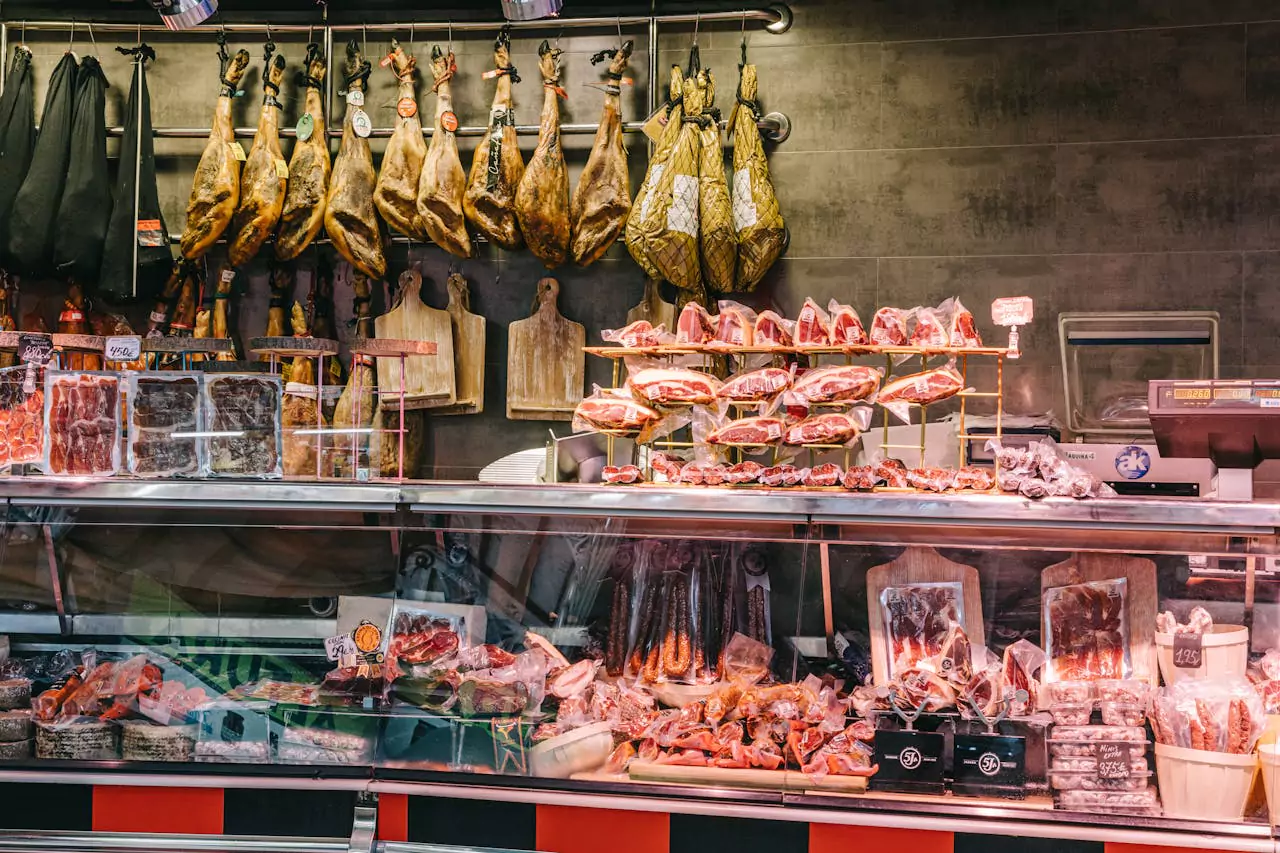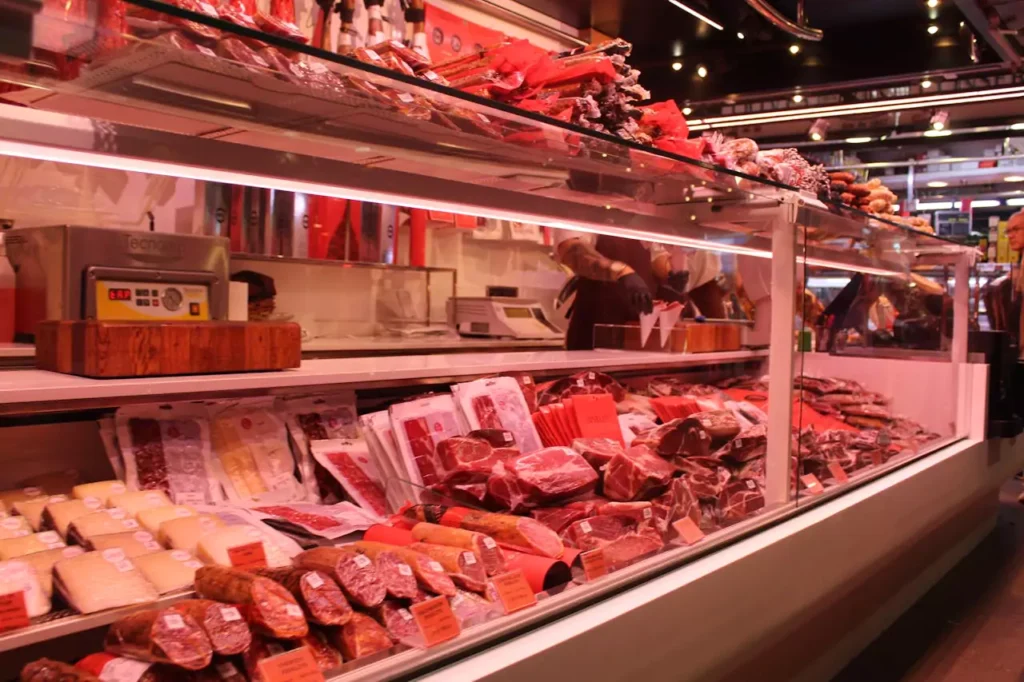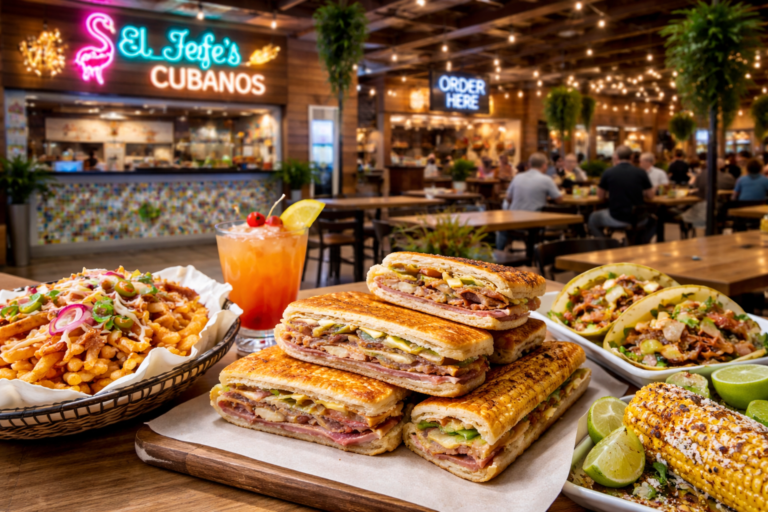
A new report titled “Saudi Arabia Processed Meat Market Size and Share Analysis – Growth Trends and Forecast Report 2025-2033″ has been released by ResearchAndMarkets.com, offering comprehensive insights into one of the Kingdom’s rapidly expanding food industry segments. The report highlights that the Saudi Arabian processed meat market is forecasted to grow from an estimated value of USD 5.14 billion in 2024 to USD 8.38 billion by 2033, registering a compound annual growth rate (CAGR) of 5.60% during the forecast period.
Several factors are propelling this growth, including increasing urbanization, higher disposable incomes, evolving dietary preferences, and the expanding availability of cold meat products across retail channels. As lifestyles change, particularly in urban centers such as Riyadh, Jeddah, and Dammam, the demand for convenient, ready-to-eat foods has surged—bringing processed meat products like deli cuts, sausages, and frozen meat items to the forefront of consumer shopping lists.
Urbanization and Busy Lifestyles Driving Demand
Urbanization plays a pivotal role in shaping Saudi Arabia’s processed meat market. With a growing proportion of the population relocating to cities for work and education, there is a noticeable shift in eating habits. City life often means less time for traditional meal preparation, prompting consumers—especially working professionals and young families—to seek out quick and accessible meal solutions. Processed meats fit neatly into this lifestyle, offering high-protein content with minimal preparation time.
Urban supermarkets, hypermarkets, and convenience stores are stocked with a wide array of processed meat products to meet this need. Additionally, the rapid growth of e-commerce platforms in the Kingdom has further widened access to cold meat options, enabling consumers to purchase a diverse range of products with ease.
Economic Growth Boosting Premium Product Sales
Rising disposable income is another major contributor to the market’s expansion. As consumers enjoy greater purchasing power, there is a noticeable uptick in demand for higher-quality and premium processed meat products. Shoppers are no longer satisfied with standard offerings and are now seeking gourmet, organic, and health-conscious alternatives. This includes meat options that are hormone-free, nitrate-free, grass-fed, or feature unique and exotic flavor profiles.
This trend has opened new avenues for market innovation, encouraging producers to develop artisanal sausages, specialty cold cuts, and luxury deli items. Additionally, consumers are increasingly inclined toward vacuum-packed meats and other ready-to-eat formats that align with their lifestyle demands while delivering elevated taste and quality.
Evolving Dietary Preferences and Health Trends
Shifting dietary habits are also influencing the rise of processed meat consumption in the Kingdom. As health awareness grows, more consumers are turning to protein-rich foods that support muscle development and overall well-being. Processed meats, known for their high protein content, serve as a convenient source of nutrition—particularly for those following trending diets like keto, paleo, or low-carb regimens.
These eating plans have helped increase the appeal of meat-based meals and snacks, such as sausages, jerky, and sliced deli meats. Additionally, the appeal of processed meats goes beyond convenience; many of these products offer variety in taste and texture, enhancing their versatility in everyday meals from breakfast sandwiches to salads and evening snacks.
Cultural and Religious Considerations Shaping the Market
In Saudi Arabia, cultural and religious factors strongly influence food purchasing decisions. All meat products must comply with halal standards, which are rooted in Islamic dietary laws. These regulations govern how animals are raised, slaughtered, and processed, ensuring that the food is permissible for consumption.
While this requirement can limit the diversity of products available on the market, it also builds strong consumer trust in the safety and ethical handling of meat products. Halal certification has become a mark of quality and compliance, helping both domestic and international brands establish credibility in the Saudi market.
However, complying with halal standards can be complex and costly for producers. Obtaining halal certification requires strict oversight and adherence to religiously appropriate slaughtering methods, which can increase production costs. Foreign suppliers, in particular, must adapt their processes to meet Saudi regulations, which may limit the variety of imported meats and contribute to higher pricing.

Retail Expansion and Technological Advancements
The expansion of modern retail infrastructure has made processed meat products more accessible than ever. With the rise of large-format supermarkets, hypermarkets, and online grocery services, consumers can now access a broader range of meat products with greater ease. Additionally, cold chain logistics and packaging innovations have helped ensure that perishable items like cold cuts and frozen meats maintain their quality and safety throughout distribution.
Technological advancements in food processing and preservation have also contributed to the industry’s growth. Improved processing techniques allow manufacturers to offer products with longer shelf lives, enhanced taste, and better nutritional profiles—appealing to both health-conscious consumers and those prioritizing convenience.
Rising Competition from Plant-Based Alternatives
Despite the positive outlook, the processed meat industry in Saudi Arabia is facing emerging challenges. Chief among them is the increasing popularity of plant-based meat alternatives. Driven by concerns around health, sustainability, and animal welfare, many consumers—especially younger generations—are exploring meatless diets or incorporating more plant-based meals into their routines.
Products derived from legumes, soy, and mushrooms offer protein-rich alternatives to animal-based meat and are gaining shelf space in major retailers and restaurants. As a result, traditional meat producers must now innovate not just within their own product lines but also consider how to compete with, or even incorporate, plant-based options into their offerings.
Navigating Challenges While Embracing Growth Opportunities
While cultural sensitivities and evolving dietary trends present challenges, they also offer opportunities for innovation. Companies that invest in halal-certified, high-quality, and health-focused meat products stand to benefit from growing demand. Similarly, those that tap into rising consumer interest in organic and gourmet foods—or strategically integrate plant-based alternatives—will be better positioned to thrive in this changing landscape.
In summary, the Saudi Arabian processed meat market is poised for significant growth over the coming decade. Urbanization, higher incomes, changing food preferences, and retail modernization are setting the stage for expansion. At the same time, companies must navigate religious guidelines and a shifting competitive landscape to secure long-term success. With the right blend of innovation, quality, and cultural alignment, the sector is set to offer promising opportunities for local and international stakeholders alike.
Let me know if you’d like this turned into a PDF, summarized, or formatted for a report or presentation.





